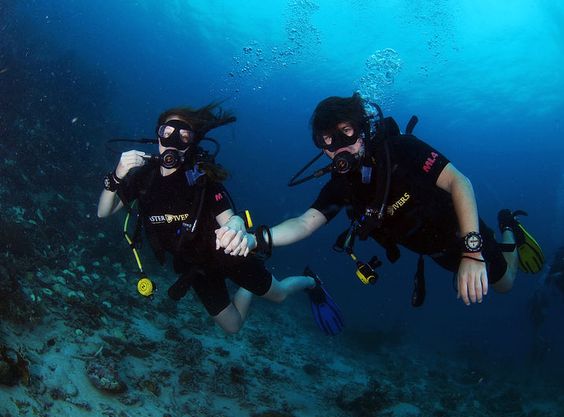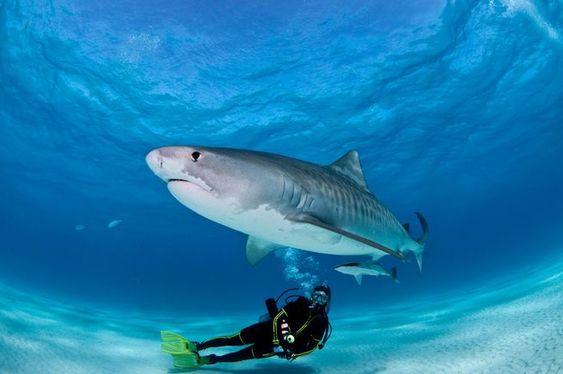Scuba diving is getting more popular as a recreational sport and as a result, more people are getting interested to learn it. Dozens of dive enters and diving schools scattered on prominent diving destinations, like Bali, Philippines, and the Maldives. Courses and lessons on diving for beginners classes are also relatively easy to pass, too! It’s no wonder that more adventure seeker drawn to scuba diving schools—they are just so ready to discover a whole new world under the water! However, any scuba newbie child not ever forget that scuba diving is actually still an extreme sport with great risk on every dive. A little mistake on diving could lead to injuries or potentially life threatening accidents. Here are five dangers every beginners should know and learn how to tackle against.

Diving Beginners Are at Risks of Barotrauma
Have you ever heard about barotrauma? Divers who fail to equalise their eardrums usually suffer barotrauma, a physical damage to body tissues (in this case is eardrums), which caused by unequal pressure between the inside with the outside of the ear. Increased underwater pressure on the air pocket in the middle of the ear usually results in diver’s barotrauma. This cause severe pain and sometimes even injury to the middle ear. Preventing barotrauma is essential skills of diving for beginners to have.
Get Drowned in the Sea
Drowning is real. Most common cause of drowning happens when a diver is panicking or unaware of non-diving health problems. Near drowning experience is most common happen among beginners. Underwater panic usually triggered by out-of-air situation or other emergencies. This could be prevented by giving proper training and strengthening buddy system.
Destroying or Getting Attacked by Ocean Life

The marine world is totally untamed, and this is something every diver should keep in mind. Beginner lessons should always emphasis on preventing damage to the marine life we all cherish very much as well as protecting one’s self from wild animal attack. Most marine creatures, including sharks and string rays, usually are not aggressive toward divers unless provoked. Divers should know the rules on the sea. Never attempt to touch anything (including corals!), never make sudden movement around animals, never swim aggressively near any creature, and many more. This won’t only protect the fragile sea life, but also protect the divers themselves from unwanted accidents.
More Adventure Stories:
Where Your Next Vacation Should Be: Komodo Diving Liveaboard
Three Best Dive Sites in Bali for Deep Diving
Amed Diving, The Best Dive spot in East Bali
Getting Nitrogen Narcosis
Beginners are at danger on nitrogen narcosis as they haven’t fully develop the ability ofr early detection of extra nitrogen in the body. Having too much nitrogen in the body triggers a narcotic effect; giggling, drunkenness, or giddiness. Nitrogen narcosis affect diver’s reasoning and coordination which can lead into fatal decision making underwater. This is why they have additional training beyond 60m diving for beginners. The deeper you go, the longer time you spend underwater, the bigger the risk to get nitrogen narcosis.
The Ultimate Mistake on Diving for Beginners: Defective Equipments
This is a serious issue on diving for beginners. Most of new divers don’t have their own equipment yet; they rely on equipment rent from scuba diving operators. One of the risk is renting an unchecked broken equipments which can result in decompression sickness, bad regulator, to drowning. Equipment check is yet another important thing a diver need to master before jumping to the open water.